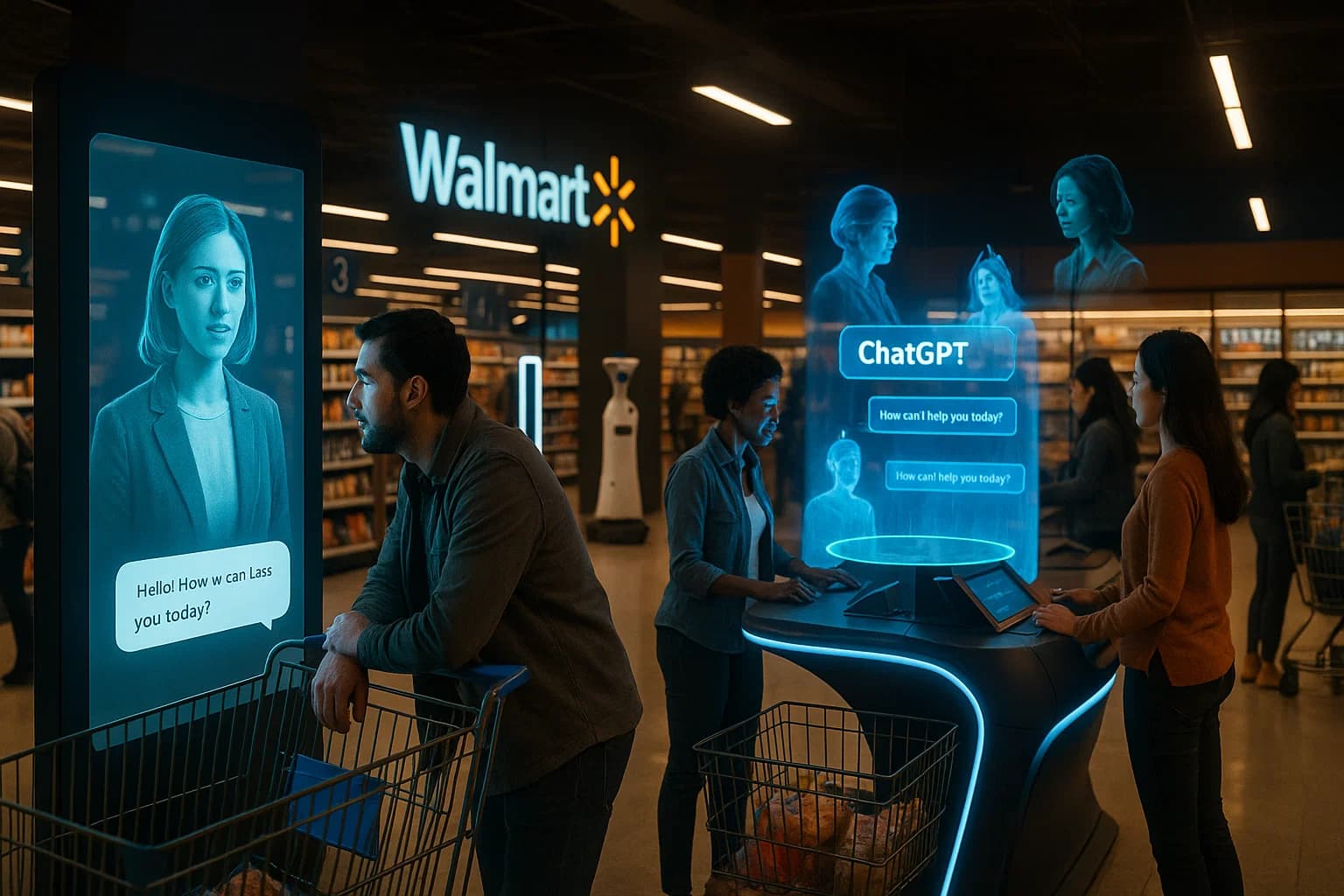What does the OpenAI-Walmart deal mean for the future of retail

News Summary
Walmart (NYSE: WMT) stock has gained amidst geopolitical uncertainties, primarily due to its recent partnership with AI giant OpenAI. This collaboration aims to redefine the customer shopping experience through ChatGPT, enabling seamless and personalized shopping via features like instant checkout. Customers can plan meals, restock essentials, or discover new products simply by chatting. This partnership signifies a shift towards an "AI-first" retail experience, making shopping more conversational and anticipatory of user needs, offering highly personalized suggestions. Beyond enhancing customer experience, AI is set to streamline Walmart's backend operations, including reducing purchasing friction, accelerating customer service, and enabling smarter inventory management. Walmart is also investing in AI training for employees to ensure technology and human collaboration. The deal heralds the rise of "agentic commerce," where AI tools learn preferences, plan ahead, and even make purchasing decisions, sometimes without explicit commands, to create a smooth, personalized, and effortless shopping experience. This approach is expected to go mainstream, reshaping how consumers shop and how businesses connect with customers and run operations.
Background
In 2025, AI-centric technologies are rapidly permeating various industries, with retail being a prominent focus. Growing consumer demand for personalized and convenient shopping experiences is driving retailers to explore innovative solutions. Walmart, as one of the world's largest retailers, has long been committed to leveraging technology to enhance operational efficiency and customer satisfaction. Its partnership with OpenAI represents a critical step for a retail giant to maintain competitiveness in the AI era, aiming to use advanced conversational AI to transform the shopping experience from traditional click-and-browse to a more intuitive, intelligent, and interactive model. This move also reflects the broader post-pandemic acceleration of digital transformation across the retail sector.
In-Depth AI Insights
Is enhancing customer experience the sole strategic motivation behind the Walmart-OpenAI partnership? - While improved customer experience and operational efficiency are stated goals, the deeper motivation lies in building a data moat and reinforcing competitive advantage. AI-driven personalized interactions allow Walmart to gather unprecedented consumer behavior and preference data, which will be crucial for future retail competition. - This partnership also serves as a proactive counter-measure against e-commerce giants like Amazon. By offering a more seamless and predictive shopping experience, Walmart aims to lock in customers, boost loyalty, and ultimately translate this into higher market share and sales. How might the widespread adoption of "agentic commerce" reshape the competitive landscape of the retail industry? - Retailers with early adoption will gain a significant first-mover advantage. Walmart's partnership positions it as an early definer and driver of "agentic commerce," potentially setting industry standards and forcing competitors to invest heavily to catch up, thereby raising barriers to entry. - Industry consolidation may accelerate. Smaller retailers or those with insufficient technological investment will struggle to offer comparable levels of personalization and convenience, risking market obsolescence. - The competitive focus will shift from price and product variety to AI technological capability and data analytics depth, demanding retailers to operate not just as merchandisers but as technology and data companies. What non-technical potential risks or challenges might this partnership face? - Data Privacy and Security Concerns: As AI collects more personal data, consumer concerns about privacy will intensify. Any data breach or misuse could severely damage Walmart's brand reputation and customer trust. - Consumer Acceptance: While "agentic commerce" sounds promising, consumer receptiveness to AI's deep involvement in shopping decisions remains to be seen. Overly aggressive recommendations or a lack of human intervention options could backfire. - Regulatory Scrutiny: Given Walmart's market dominance and OpenAI's leadership in AI, the deep collaboration between the two could attract antitrust attention, especially concerning data monopolies and fair market competition.